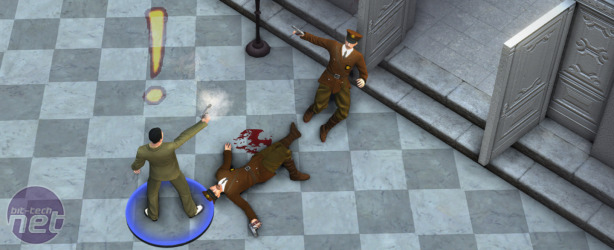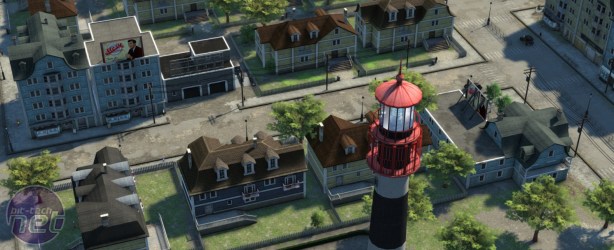Omerta: City of Gangsters preview
December 3, 2012 | 09:32
Companies: #kalypso-media #kalypso-media-group

Omerta: City of Gangsters Preview
Publisher: Kalypso MediaPlatform: PC
Release date: Early 2013
Omerta: City of Gangsters isn't a hard game to understand, but it looks like it may well be a hard game to appreciate - that was the consensus we had when Kalypso demoed the title for us a few weeks ago. It's a simple enough premise and design; take control of a prohibition-era city through a mix of city-building strategy and turn-based combat, but it's the uneven production values which complicate things.
So, let's be blunt. Graphically speaking, Omerta doesn't look amazing. The lighting seems far too pale, the streets look far too empty and the animations of the characters seem stiff and slow in a way that's evocative of automatons on a ghost train.
Even the concept art and character art Haemimont has shared feels flat and one-dimensional; a caricatured style which doesn't match up to either the period or the final screenshots.
It doesn't stop there either; the menus in particular seem weirdly put together, screaming their lack of craft through an abundance of empty, white space. The character creation process looked particularly plain, though it compensates for that in the way it lets you customise the history of your character ala The Elder Scrolls.
And it's exactly that which makes Omerta a game that's hard to appreciate, so far - that while it may be visually plain and uninspired, the quality of the content laying underneath it might be enough to compensate. Or more than compensate...
What we've seen suggests Omerta is directly inspired by the sort of nostalgic classics which have been missing from the industry for so long - games like the original Fallout and Jagged Alliance. Our senses might tell us it's noticeably lacking, our brains tell us it's a classic in the making.
Part of it is that Omerta is divided into two distinct parts, which you'll switch between as you progress through the campaign. The first is the empire-building stage, where your mission is to increase the size of your territory and your profit margin by buying businesses, running rackets and laundering the proceeds through fronts. The second stage only springs up when you launch a mission, at which point Omerta becomes a turn-based combat game with enough detail flush with detail.
Granted, there's nothing hugely unique about either portion, but each seem to have been assembled decently enough to fill a niche in the market. The complexity of the turn-based combat in particular seems especially promising; your hand-picked team of mob specialists will have to contend with all manner of critical effects and special moves.
The empire-building meanwhile appeals mainly on account of its scope; Haemimont boasts that the city is realistically simulated across a campaign spanning many years. We're far too seasoned to believe the simulation will be deeper than the competition or that the AI will seem believable to anything but a casual eye, but the idea to see the years take their toll? That we're very interested in learning more about.

MSI MPG Velox 100R Chassis Review
October 14 2021 | 15:04











Want to comment? Please log in.